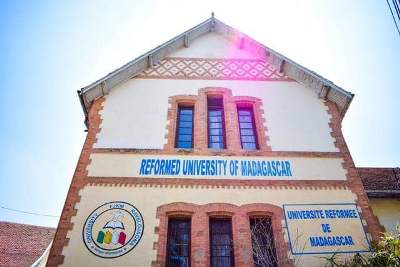Présentation





A Critical Look at Seminary Curricula and Innovative Ventures of Ministerial formation in Madagascar
We form and train students for church ministry by the division of labour into Bible studies, history, practical theology and systematic theology. This way evolved from the tripartite division of theology (historical, philosophical and practical) explicited by Friedrich Schleiermacher (1768–1834) in his Brief Outline on the Study of Theology. The latent functions of this paradigm are well known. See for example David Kelsey’s Between Athens and Berlin: The Theological Education Debate (www.religion-online.org/showbook.asp?title=437). In what follows I attempt to trace the ways the church and the faculty have tried to redress the drawbacks of the paradigm and identify the present concerns and questioning.
To address the issues of unity and issues of pluralism the church and the faculty have focused on ‘the end of theological education, not on its methods or structure.’ In the ninety fifties and the sixties, the focus was the local church and ecumenism. In the seventies and the eighties it was shifted to the larger community. Now the end of theological is seen primarily as God’s mission. The first period was characterized by the emphasis on indigenous identity, the second by the massive inclusion of the social sciences in the curricula and the third by interdisciplinarity.
Despite the innovations intriguing issues persist. One of them is, “how come that some of the best students at college demonstrate poor performance in the field whereas some students of poor marks excel in the ministry?” Fingers have been pointed to two directions.
First, suspicion arose toward the western training of the teaching staff. There is in the church the dread of going the shrinking way of parent western churches. Is the western way of training pastors an asset or a liability?
Second, the urban location of ministerial formation was agreed to have too much unwanted consequences. More than 75% of the population are rural people. Yet the students are uprooted from the country by five years of urban life. The decision taken was to make the venues of the programme of ministerial formation flexible, urban and rural with more years in rural settings.
Another intriguing question consists of the identity of the church. The church of Jesus Christ in Madagascar is a united church. It has been moving to post-denominational status. However, that movement has been stopped by the general assembly of the church taking the decision of reverting to the identity of a Reformed Church. This is a case of ecclesiophagy (denominational cannibalism) as the churches which came to union were French reformed, British congregational, Scottish Presbyterian and Quaker (!) Moreover the contribution of the indigenous wing, which contributes much to the growth of the church, is ignored. The theological faculty shares responsibility in this. The difficulty of constructing identity seems very difficult.
Finally there is the soul searching concern about whether the ministerial formation, as we know it, can produce the type of mission-doers the changing society longs for. History shows that it is a theological problem that only God can solve and that mainly the members of the larger community, not necessarily the church, can assess.
For illustration, the case of the crisis of the dancing mania during the reign of Radama II in the 1860ies can be taken. That king was very sympathetic to anything western, including Christianity, in a largely non Christian society. He frustrated the custodians of tradition and a political revolution was looming. One day, a contagious dancing mania erupted. Crowds acting in irrational ways marched growingly to the royal palace. At that time the foreign secretary of the London Missionary Society as well as a catholic prominent envoy visited the king. The king was also advised by an expatriate medical doctor. These people were totally unhelpful in explaining what was going on and what action to take. In fact, the dancing mania stopped only after the king was strangled to death. It was only thirty years later, in 1895, that a new type of Christian mission-doers, able to solve the problems associated with the dancing mania, appeared. They were the agents of a new indigenous Christian movement.
Can our graduates face the challenges of present society? Or is it the mission of a different type of mission-doers? To move forward, the church encouraged the faculty of theology to spearhead the construction of a new university. The time could not be more opportune.
Now, the key concept is ‘inter-epistemic’, 1) where the knowledge process of ‘encounter and becoming new’ matters more than the unavoidable problem/solution and question/answer mindsets, 2) where faith, science, commonsense, imagination and critical thinking inter-play in fruitful but also deadly manner. People gain faith, live by faith, and may lose faith. An inter-epistemic perspective helps us deal with present complexity, with the roller coaster of internet life and the inflation of explicit knowledge.
Professor Laurent W. Ramambason
Ramambason, L. W. (2007). A Critical Look at Seminary Curricula and Innovative Ventures of the Reformed Faculty of Theology in Madagascar. Retrieved from Princeton Theological Seminary: http://www.ptsem.edu/news/
8th August 2020